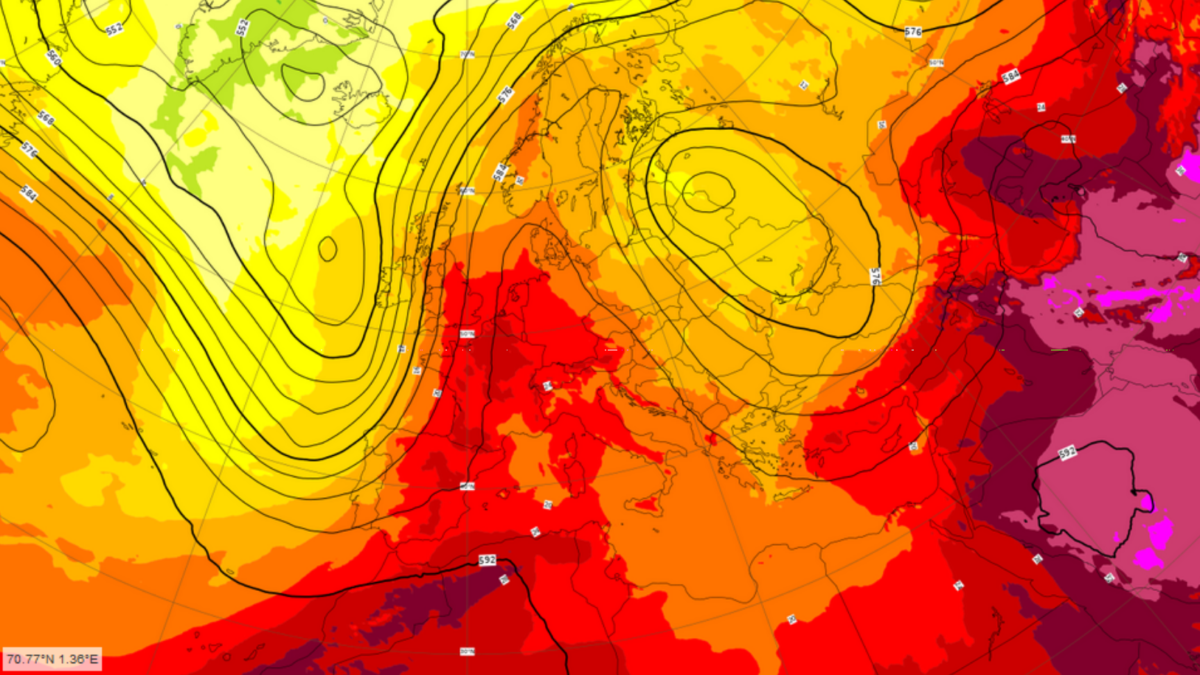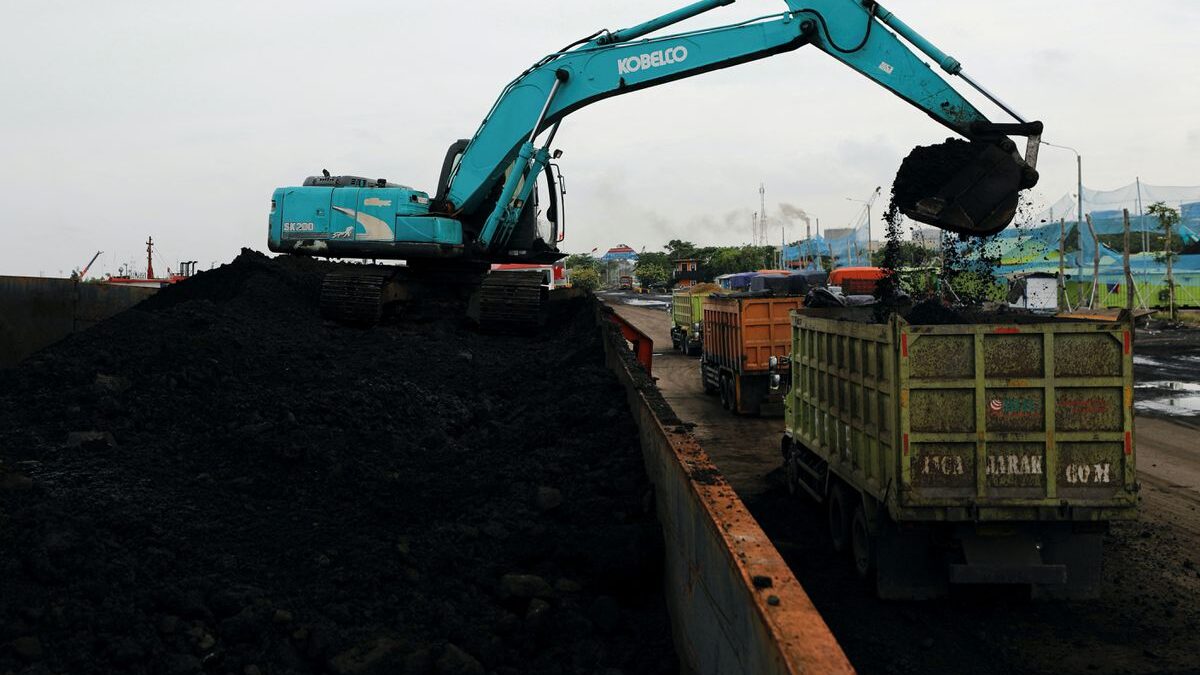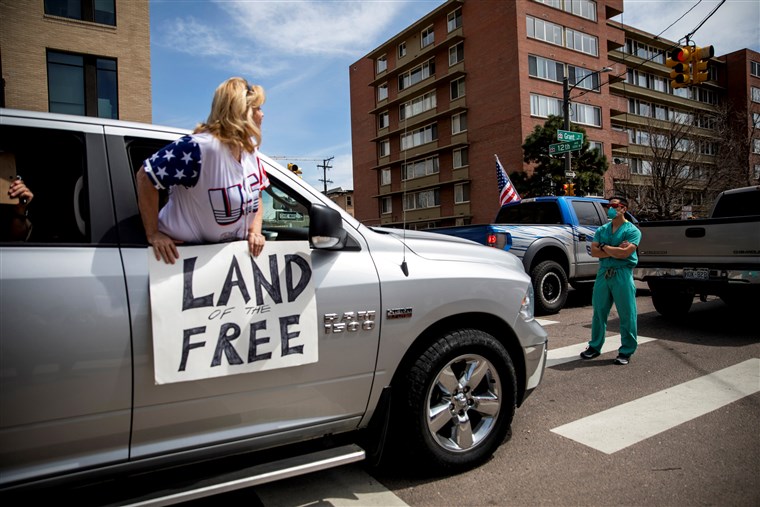UN expert: World faces “climate apartheid” risk, 120 more million in poverty – “Even if current targets are met, tens of millions will be impoverished, leading to widespread displacement and hunger”
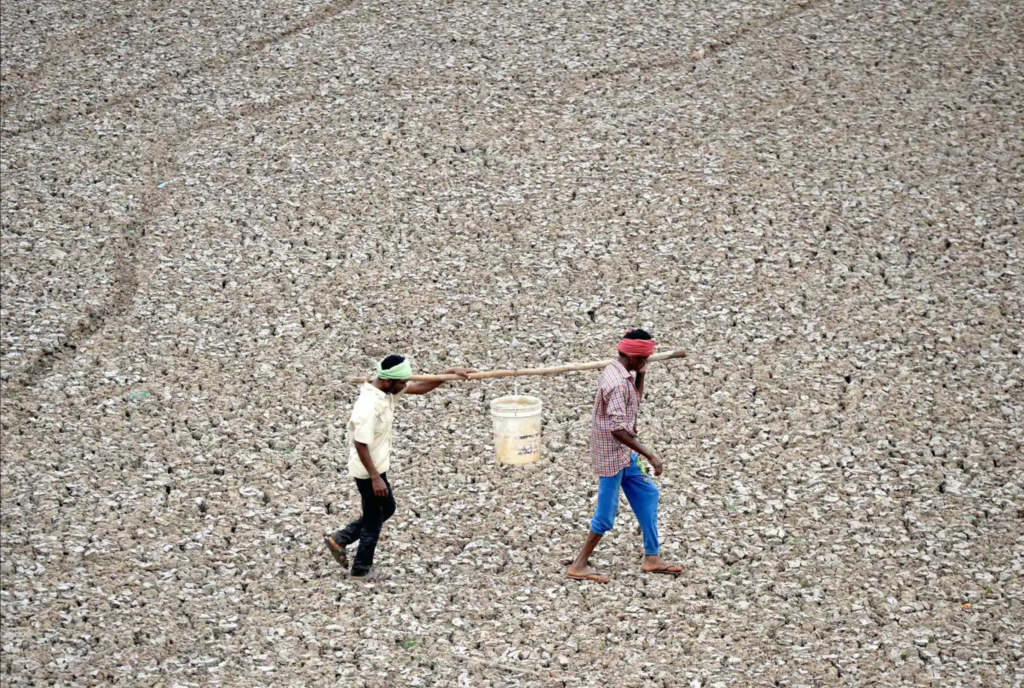
25 June 2019 (UN News) – Climate change “threatens to undo the last 50 years” of development, global health and poverty reduction, a United Nations expert said on Tuesday, citing the risk of a new era of “climate apartheid” where the rich buy their way out of rising heat and hunger.
“Even if current targets are met, tens of millions will be impoverished, leading to widespread displacement and hunger,” said the UN Special Rapporteur on extreme poverty and human rights, Philip Alston. [Climate change and poverty: Report of the Special Rapporteur on extreme poverty and human rights (docx) –Des]
Underscoring that climate change will have the greatest impact on the most vulnerable, he added that “it could push more than 120 million more people into poverty by 2030 and will have the most severe impact in poor countries, regions, and the places poor people live and work.”
Even in the best-case scenario of a 1.5°C temperature increase by 2100, extreme temperatures in many regions will leave disadvantaged populations food insecure, with less incomes and worsening health.
Moreover, many will have to choose between starvation and migration, he said.
“Perversely, while people in poverty are responsible for just a fraction of global emissions, they will bear the brunt of climate change, and have the least capacity to protect themselves,” Mr. Alston flagged.
States have marched past every scientific warning and threshold, and what was once considered catastrophic warming now seems like a best-case scenario. Even today, too many countries are taking short-sighted steps in the wrong direction.
Philip Alston, UN Special Rapporteur on extreme poverty and human rights
“We risk a ‘climate apartheid’ scenario where the wealthy pay to escape overheating, hunger, and conflict while the rest of the world is left to suffer.”
Climate change carries immense implications for human rights, including to life, food, housing and water. It will also impact democracy said Mr. Alston, as governments struggle to cope with climate consequences and persuade constituents to accept the major social and economic transformations required – rendering civil and political rights vulnerable.
“Most human rights bodies have barely begun to grapple with what climate change portends for human rights, and it remains one on a long laundry list of ‘issues’, despite the extraordinarily short time to avoid catastrophic consequences,” he asserted.
“As a full-blown crisis that threatens the human rights of vast numbers of people bears down, the usual piecemeal, issue-by-issue human rights methodology is woefully insufficient”, the UN expert added.
“States have marched past every scientific warning and threshold, and what was once considered catastrophic warming now seems like a best-case scenario,” Mr. Alston forecast. “Even today, too many countries are taking short-sighted steps in the wrong direction.”
States are even failing to meet their current carbon emissions reduction and climate financing commitments and continue to subsidize the fossil fuel industry with $5.2 trillion per year.
“Maintaining the current course is a recipe for economic catastrophe,” Mr. Alston spelled out, noting that while economic prosperity and environmental sustainability are “fully compatible”, they require “decoupling economic well-being and poverty reduction from fossil fuel emissions.”
This transition needs local policies to support displaced workers and ensure quality jobs.
“A robust social safety net will be the best response to the unavoidable harms that climate change will bring,” Mr. Alston explained, saying that this “should be a catalyst” for states to fulfil “long ignored and overlooked economic and social rights”, including to social security and access to food, healthcare, shelter, and decent work.
“If climate change is used to justify business-friendly policies and widespread privatization, exploitation of natural resources and global warming may be accelerated rather than prevented,” argued the UN expert.
“There is no shortage of alarm bells ringing over climate change, and an increase in biblical-level extreme weather events appear to be finally piercing through the noise, misinformation, and complacency, but these positive signs are no reason for contentment,” Mr. Alston concluded. “A reckoning with the scale of the change that is needed is just the first step.”
World faces ‘climate apartheid’ risk, 120 more million in poverty: UN expert
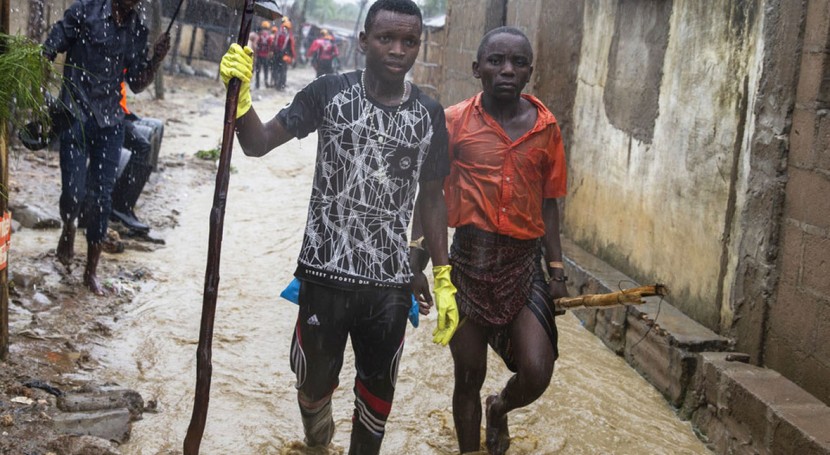
UN expert condemns failure to address impact of climate change on poverty
GENEVA (25 June 2019) – Climate change will have the greatest impact on those living in poverty, but also threatens democracy and human rights, according to a UN expert.
“Even if current targets are met, tens of millions will be impoverished, leading to widespread displacement and hunger,” said the UN Special Rapporteur on extreme poverty and human rights, Philip Alston, in a report released today.
“Climate change threatens to undo the last 50 years of progress in development, global health, and poverty reduction,” Alston said. “It could push more than 120 million more people into poverty by 2030 and will have the most severe impact in poor countries, regions, and the places poor people live and work.”
Even the unrealistic best-case scenario of 1.5°C of warming by 2100 will see extreme temperatures in many regions and leave disadvantaged populations with food insecurity, lost incomes, and worse health. Many will have to choose between starvation and migration.
“Perversely, while people in poverty are responsible for just a fraction of global emissions, they will bear the brunt of climate change, and have the least capacity to protect themselves,” Alston said. “We risk a ‘climate apartheid’ scenario where the wealthy pay to escape overheating, hunger, and conflict while the rest of the world is left to suffer.”
Climate change has immense, but largely neglected, implications for human rights. The rights to life, food, housing, and water will be dramatically affected. But equally importantly will be the impact on democracy, as governments struggle to cope with the consequences and to persuade their people to accept the major social and economic transformations required. “In such a setting, civil and political rights will be highly vulnerable,” the Special Rapporteur said.
“Most human rights bodies have barely begun to grapple with what climate change portends for human rights, and it remains one on a long laundry list of ‘issues’, despite the extraordinarily short time to avoid catastrophic consequences,” Alston said. “As a full-blown crisis that threatens the human rights of vast numbers of people bears down, the usual piecemeal, issue-by-issue human rights methodology is woefully insufficient.”
Sombre speeches by government officials at regular conferences are not leading to meaningful action. “States have marched past every scientific warning and threshold, and what was once considered catastrophic warming now seems like a best-case scenario,” Alston said. “Even today, too many countries are taking short-sighted steps in the wrong direction.”
States are failing to meet even their current inadequate commitments to reduce carbon emissions and provide climate financing, while continuing to subsidise the fossil fuel industry with $5.2 trillion per year.
“Maintaining the current course is a recipe for economic catastrophe,” Alston said. “Economic prosperity and environmental sustainability are fully compatible but require decoupling economic well-being and poverty reduction from fossil fuel emissions.”
This transition will require robust policies at the local level to support displaced workers and ensure quality jobs. “A robust social safety net will be the best response to the unavoidable harms that climate change will bring,” Alston said. “This crisis should be a catalyst for states to fulfil long ignored and overlooked economic and social rights, including to social security and access to food, healthcare, shelter, and decent work.”
Although some have turned to the private sector for solutions, an overreliance on for-profit efforts would nearly guarantee massive human rights violations, with the wealthy catered to and the poorest left behind. “If climate change is used to justify business-friendly policies and widespread privatisation, exploitation of natural resources and global warming may be accelerated rather than prevented,” Alston said.
“There is no shortage of alarm bells ringing over climate change, and an increase in biblical-level extreme weather events appear to be finally piercing through the noise, misinformation, and complacency, but these positive signs are no reason for contentment,” Alston said. “A reckoning with the scale of the change that is needed is just the first step.”
ENDS
Mr. Philip Alston (Australia) took up his functions as the Special Rapporteur on extreme poverty and human rights in June 2014. As a Special Rapporteur, he is part of what is known as the Special Procedures of the Human Rights Council. Special Procedures, the largest body of independent experts in the UN Human Rights system, is the general name of the Council’s independent fact-finding and monitoring mechanisms that address either specific country situations or thematic issues in all parts of the world. Special Procedures’ experts work on a voluntary basis; they are not UN staff and do not receive a salary for their work. They are independent from any government or organization and serve in their individual capacity.
Contact
Follow the Special Rapporteur on Twitter @Alston_UNSR and Facebook at www.facebook.com/AlstonUNSR
For more information and media requests, please contact Bassam Khawaja (+1 646 886 7211 / bassam.khawaja@nyu.edu) or Patricia Varela (+41 22 928 9234 / pvarela@ohchr.org)
For media inquiries related to other UN independent experts please contact Jeremy Laurence, UN Human Rights – Media Unit (+41 22 917 9383 / jlaurence@ohchr.org
Follow news related to the UN’s independent human rights experts on Twitter @UN_SPExperts
UN expert condemns failure to address impact of climate change on poverty
